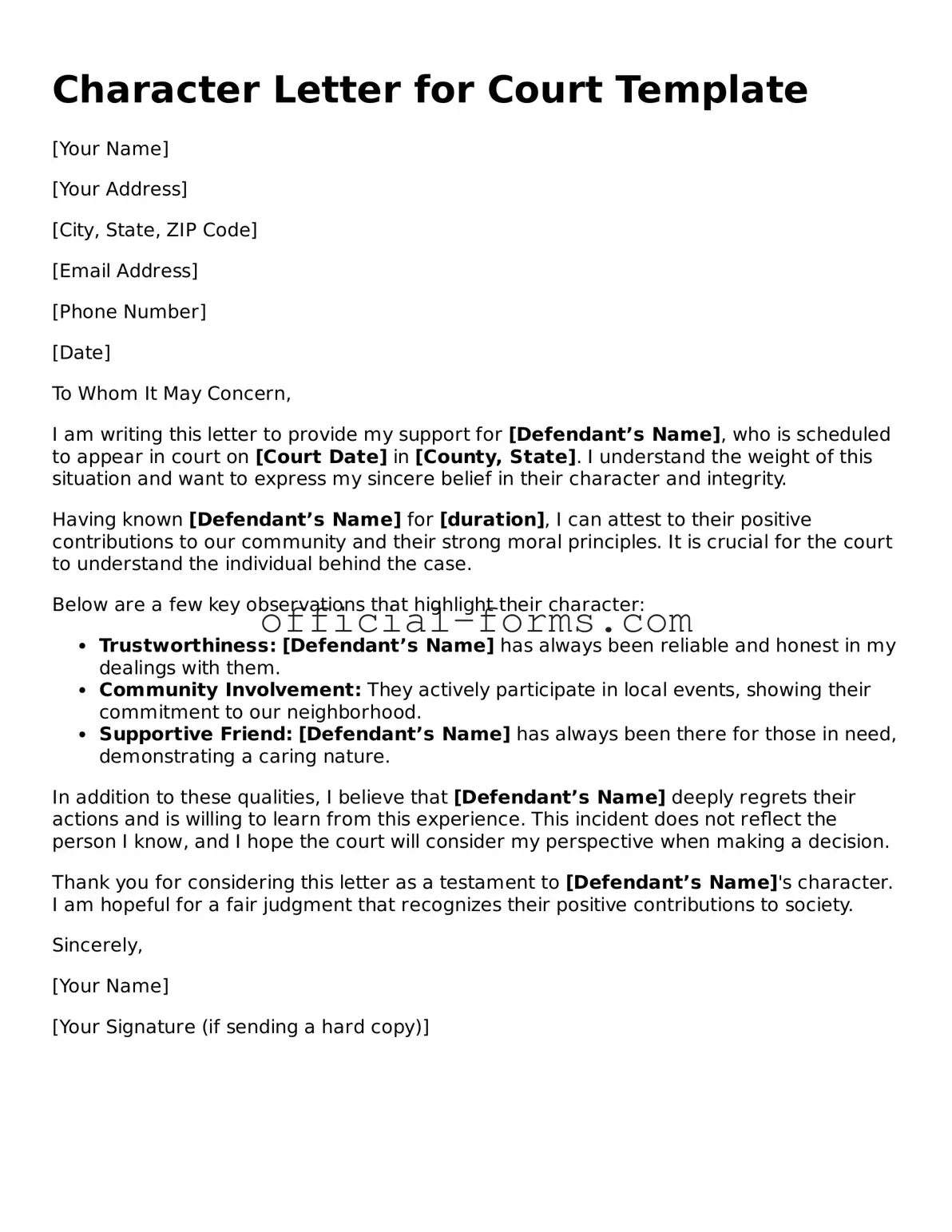Attorney-Verified Character Letter for Court Template
The Character Letter for Court form is a document that individuals can submit to provide insight into a defendant's character and behavior. This letter typically includes personal anecdotes and observations from friends, family, or colleagues. Such letters may help the court understand the individual beyond the charges they face.
Open My Character Letter for Court Now

Attorney-Verified Character Letter for Court Template
Open My Character Letter for Court Now
Don’t leave your form incomplete
Finish Character Letter for Court online quickly from start to download.
Open My Character Letter for Court Now
or
➤ PDF
